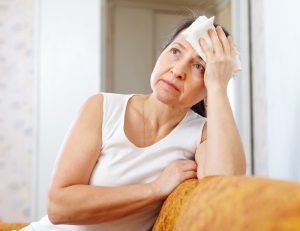
Is delaying menopause the key to extending healthy living?
In a groundbreaking move, First Lady Jill Biden recently unveiled a White House initiative focused on women’s health, reigniting interest in a crucial research question: What if we could delay menopause and, in doing so, enhance longevity by reducing its associated health risks? This question stems from a growing field of research that views the female reproductive system as essential to overall health, far beyond its reproductive functions. Central to this inquiry are the ovaries, which significantly influence a woman’s health.
The Connection between Ovaries and Ageing
The ovaries act as a control centre for a complex hormonal network in a woman’s body, using hormones like oestrogen and progesterone to communicate with and impact nearly every organ. While scientists are still deciphering the specifics of these interactions, it’s evident that abnormal ovarian function leads to various health issues.
As women age and ovarian function declines, leading to menopause, the risk of age-related diseases such as dementia, cardiovascular disease, and osteoporosis rises. The earlier menopause occurs, the higher the risk for these chronic conditions and the shorter a woman’s life expectancy. Women who undergo premature menopause due to ovarian removal face even greater health risks, suggesting that ovaries may continue to offer some protection even after ceasing egg release.
The limited lifespan of the ovaries makes them an intriguing target for experimentation. Researchers believe that extending ovarian function could better align their viability with other organs, potentially altering women’s health and longevity. The White House initiative, with its substantial budget, aims to highlight the link between menopause and longevity, attracting more funding and expertise to this vital area.
Menopause and Health Risks in Singapore
In Singapore, menopause is linked to increased health risks, particularly concerning heart disease. Singaporean women, like their global counterparts, face a heightened risk of chronic conditions if menopause occurs early.
During menopause, the decline in oestrogen levels can lead to changes in blood vessels, increasing the risk of cardiovascular issues. This hormonal change can also negatively impact cholesterol levels, leading to higher LDL (bad cholesterol) and lower HDL (good cholesterol). Additionally, menopause can result in weight gain and changes in fat distribution, further contributing to heart disease risk. Factors such as smoking, body mass index, and life stressors contribute to early menopause onset, with genetic factors also playing a role.
However, the question remains whether the ovaries themselves are the primary drivers of health during ageing or if other factors accelerating ageing also lead to ovarian dysfunction. This “chicken-egg” dilemma is a central focus for researchers.

Image by bearfotos on Freepik
Implications for Women’s Health in Singapore
Delaying menopause could have significant implications for women’s health in Singapore. Extending ovarian function may reduce the risk of age-related diseases and enhance quality of life, aligning with a broader trend in longevity research focused on extending healthy living rather than merely prolonging life.
The initiative has generated excitement among researchers and startups, with many eager to secure funding and contribute to this crucial field. This collaborative effort highlights the importance of women’s health within the broader context of ageing and longevity research.
In Singapore, as elsewhere, delaying menopause could be a key to enhancing longevity and reducing the prevalence of age-related diseases. Continued research and potential interventions offer hope for women to live longer, healthier lives. By focusing on the ovaries’ role in overall health, scientists are opening new pathways to improve women’s health and well-being throughout their lives.
Understanding the potential to delay menopause and its associated health benefits aligns perfectly with BUZUD’s mission to empower individuals with proactive health management tools. BUZUD FSH Urine Test for self-testing enables women to monitor their follicle-stimulating hormone (FSH) levels, a critical indicator of approaching menopause. By providing easy access to such crucial information, BUZUD helps women make informed decisions about their health, potentially allowing for timely interventions that could contribute to prolonged ovarian function and improved overall well-being.
Image by storyset on Freepik
DISCLAIMER
All information presented herein serves as a general guideline, and is not intended as dispensing any medical advice(s). User(s) should consult their doctor to seek further clarification for any doubt. It is recommended to refer to this guide with sole discretion, thereby we shall not be held responsible for any part of the information as presented.
REimagined Healthcare with BUZUD Care Experience at:
585 North Bridge Road, #01-02 Raffles Hospital, Singapore 188770
Call: +65 6518 9959 or Email: customercare@BUZUD.com
No Comments
Leave a Reply
You must be logged in to post a comment.
